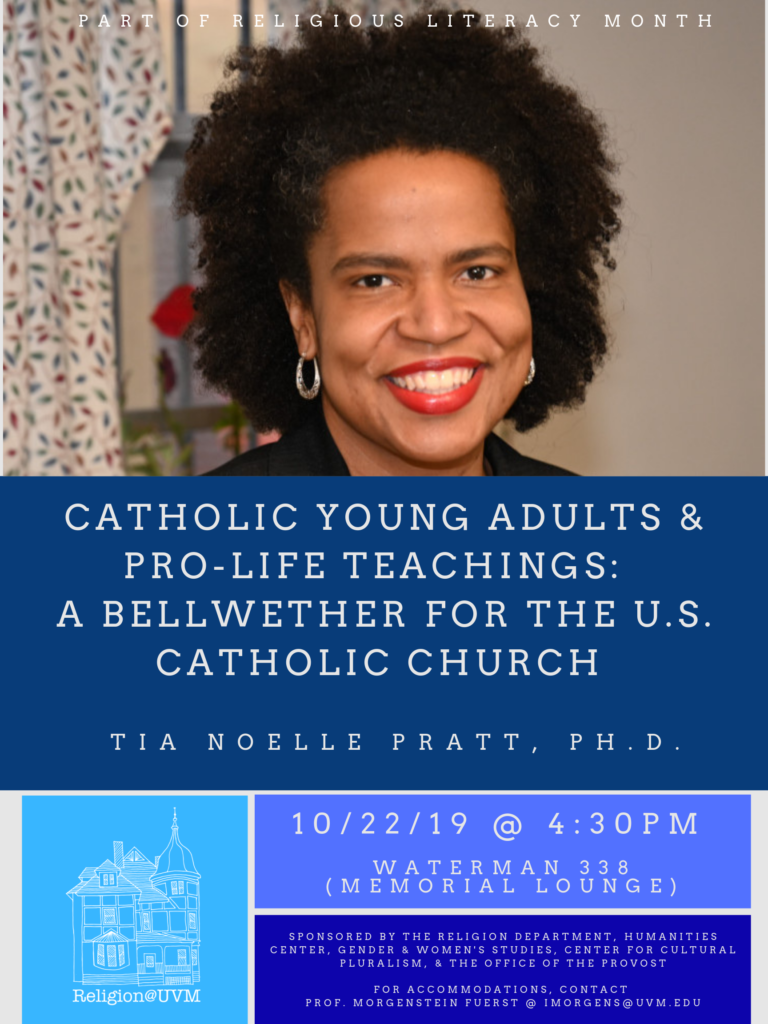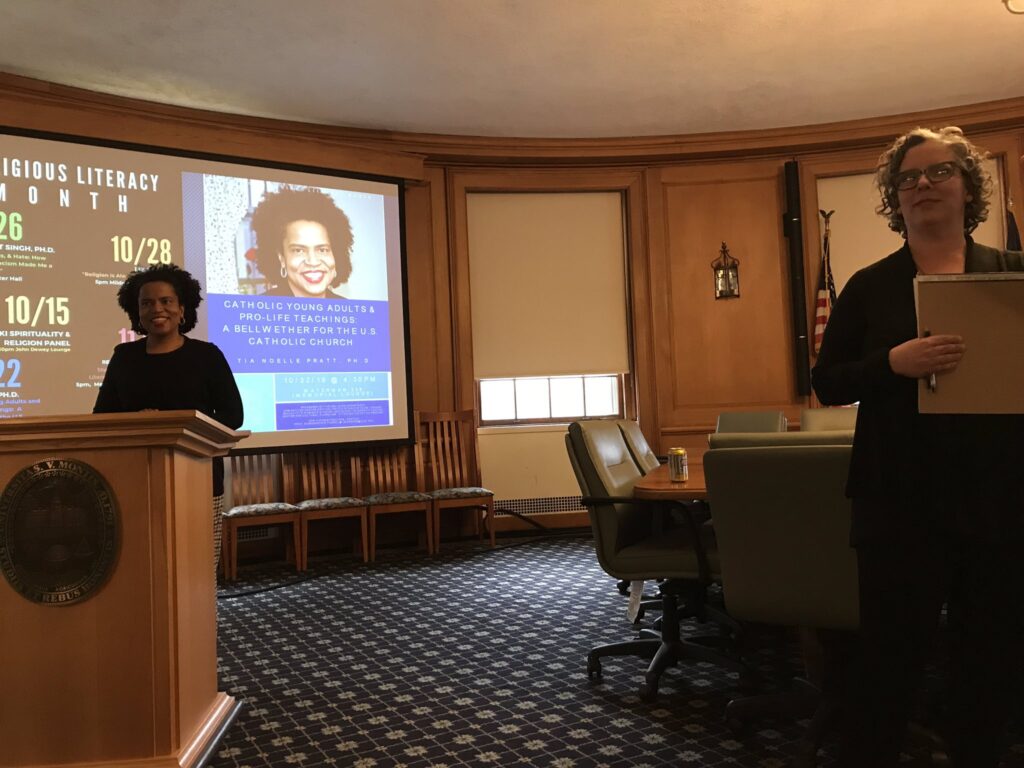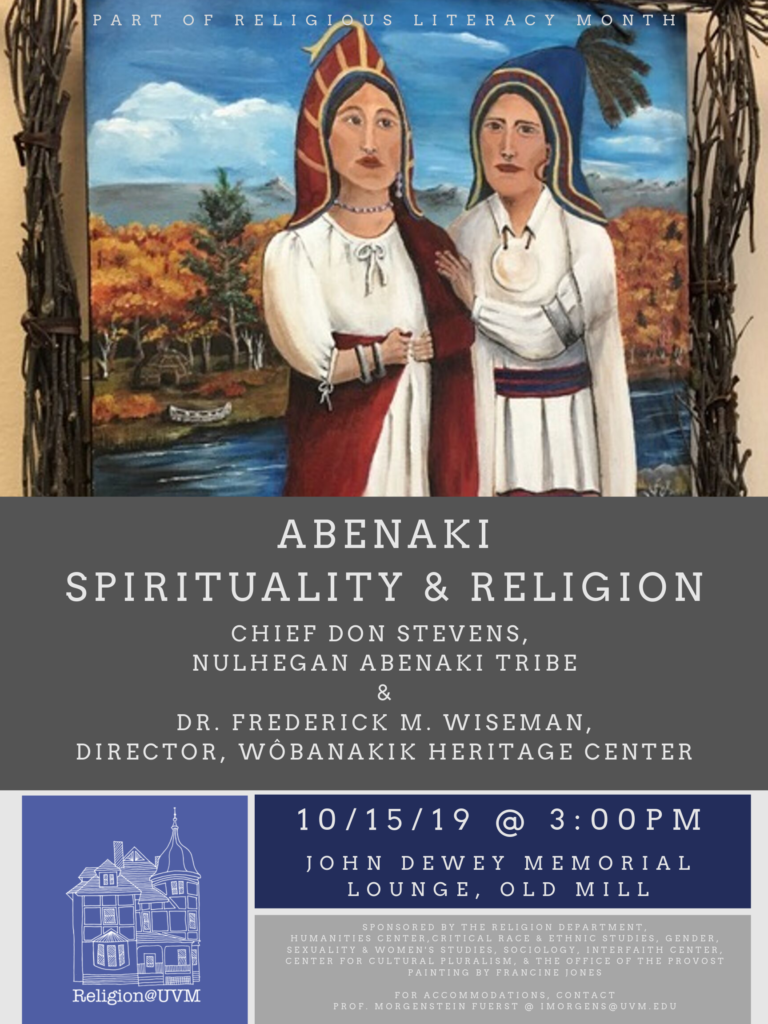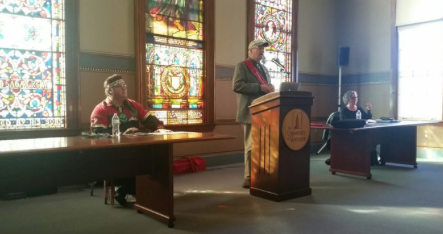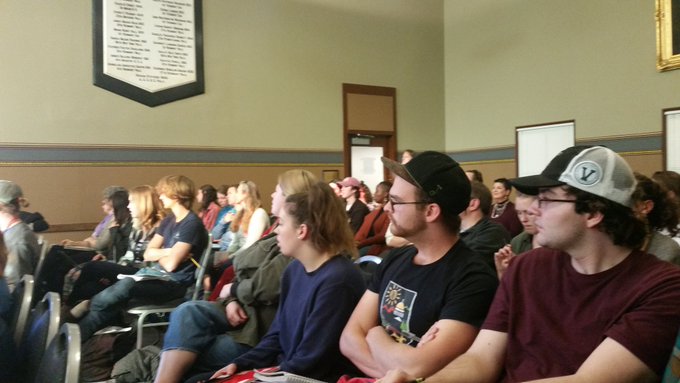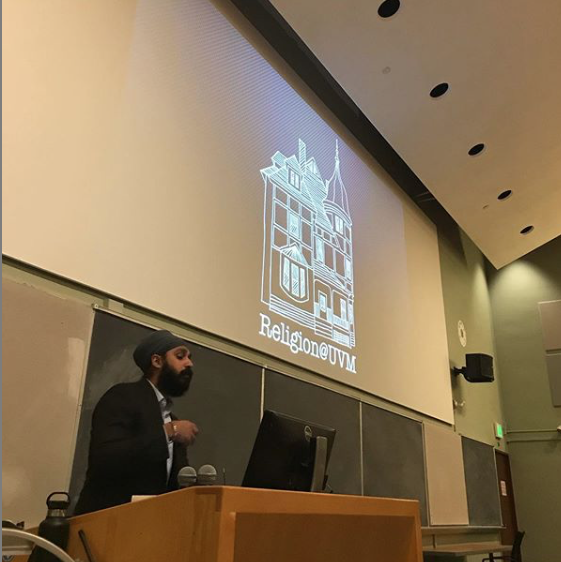On October 28, we hosted our fourth event in our Religious Literacy Month slate of events! Liz Kineke, a producer, journalist, and director on the “God Beat” joined us to talk about how, as a journalist, she sees religion as always in the room!
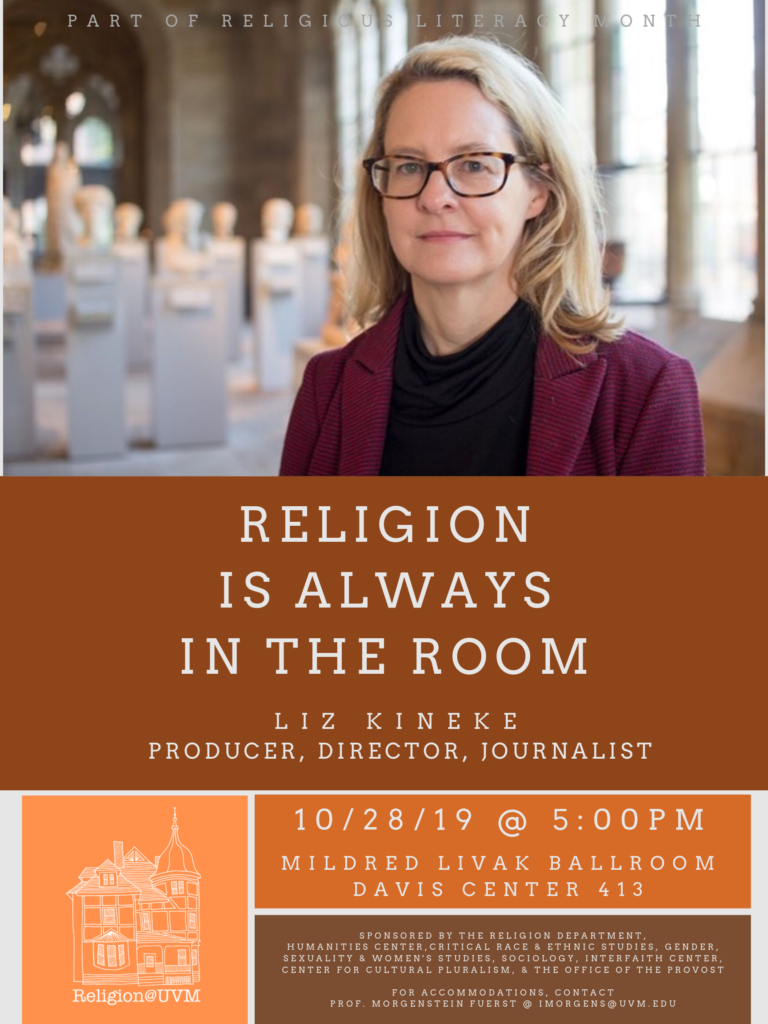
At her talk, Ms Kineke walked students through how being able to read religion in the room–a religious literacy issue–came later on in her career as a journalist. She said, “while 4 years ago I would have said religion is a white noise hum, today it is a blaring siren,” and warned students that religion and freedom of the press are tied up, literally, in the first amendment. In her view, freedom to think and write are the bedrocks of democracy; she quipped that if students wanted to become journalists, they need a first amendment scholar on speed dial, but if students wanted to write about religion they need two.
Ms. Kineke also–perhaps obviously–showed the audience clips of documentaries. She highlighted Faith on the Frontlines, a piece about the prominent role of clergy in the Charlottesville, VA anti-racism, anti-fascism demonstration that left one dead. She also spoke about Religion & Identity in Young America, a documentary that follows three young people from minoritized religions and attends to them not as victims but as protagonists dealing with increased religious-racial scrutiny.
The talk was attended by about 100 students, faculty, staff and community members and wrapped up with a panel discussion featuring Ms. Kineke, Dr. Vicki Brennan, and Dr. Ilyse Morgenstein Fuerst.



